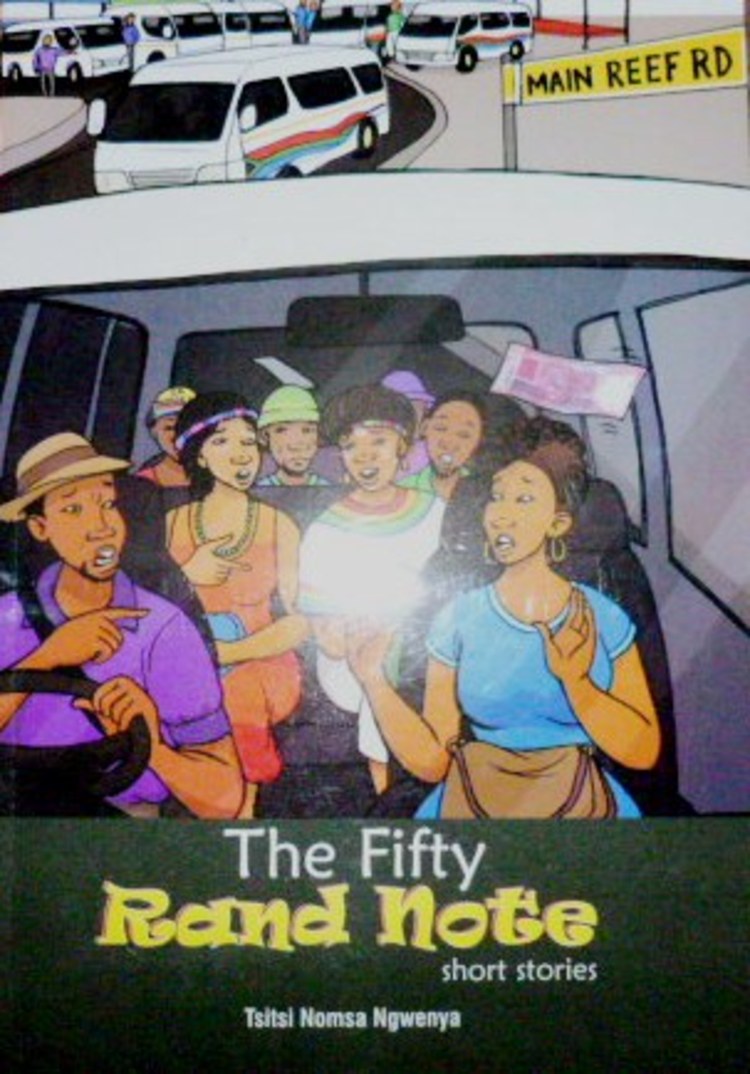Ngwenya’s new book mirrors society

Beaven Tapureta Bookshelf
When Tsitsi Nomsa Ngwenya published her debut novel “Izinyawo Zayizolo” (Radiant Publishers) last year and promised to make a follow-up with an English version of it, we welcomed her wish to satisfy readers equally and beat the geographical inadequacy of our mother languages.
Though she had some English stories already featured in different journals, still those who could not read Ndebele were much expectant of the English edition of the Ndebele novel, hoping this book could help understand the author.
There were no English reviews of the Ndebele novel. “Where are the Ndebele writers/book reviewers Jerry Zondo, Pathisa Nyathi, and others to come to our rescue?” we wailed.
Little did we know Ngwenya has her own thoughts, instead of the English version of her novel, she has dished out an anthology titled “The Fifty Rand Note and Other Stories” (2017, Royal Publishing House, Harare). Surprisingly, our curiosity to know this author is somehow abated but still we want that English edition of “Izinyawo Zayizolo”!
With this anthology, Ngwenya has proved she is novelist/short story writer in English and Ndebele languages, following in the footsteps of other great women writers who have broken the barriers of language and form. The latest short story anthology, which is only few days’ old and mint-fresh from the publishing stable, is titled after the short story “The Fifty Rand Note” which first appeared in a 2014 UNISA international literary journal called Imbizo.
It may be too early to write Ngwenya as a ‘disciple’ of the late celebrated writer Yvonne Vera in her poetic fiction and/or cinematic description but it is there to see in the anthology in various stories. Speaking to Bookshelf recently, Ngwenya said she likes Vera’s writing style and respect her as one of Africa’s brilliant writers.
Fast-paced, with a great deal specification of place names and other characters’ mother languages, “The Fifty Rand Note” also has a touching scene of a woman with a dead child on her back, a similar scene Vera captures differently in her novel “Without a Name” (1994).
In Ngwenya’s story set in hectic Johannesburg (South Africa), a young mother, caught up in a bloody shoot-out and like everyone including the narrator, is scrambling for cover when she comes to the narrator to be helped unfasten her child from her back not knowing the child is already dead, shot in the head.
The narrator, a visitor to S. Africa, tells her story as it happens, painting with words the uncertain life African immigrants live in South Africa. The anthology, carrying fourteen stories, displays the author’s consciousness of diverse storytelling approaches. In the story “A Letter to Me”, she uses the letter approach and the letter is addressed to self. “Nomvula’s Melodious Song” is structured and reads as a narrative poem!
The author loves the autobiographical style, that is, she draws on events of her business life in some stories. Ngwenya is a poet, writer and businesswoman.
Her business life, the happy and sad moments, is fictionalised in some of the stories like “Yesterday Morning” in which the narrator is stressed because of debts and the business is terribly low. The story is rich in poetic language, reflecting renewal or restoration in the end.
“My writing has a business person view of things maybe that is why it’s like that but not for all my stories,” said the author in a brief interview with Bookshelf.
The first-person point of view is spread in the anthology, putting on various fictional characters, and not necessarily the author. The contemporaneity of themes pervades the anthology and the anthology title was rightly chosen as ‘the rand’ symbolizes money which rules the whole world.
Subtly, money is the force of the conflict, internal or external. Read, for instance, “Nomvulo’s Melodious Song” and feel the pain of a woman who lost a chance to love her rich husband because of her avarice which drove him away.
“He wanted a wife/I wanted money,” she regrets. In other stories, men are responsible also for the mismanagement of their moneys as in “Uncle Njabulo’s Return”.
Ngwenya told Bookshelf that she thinks African people have a long way to go in understanding money, how to manage it and so forth. Yet why African people?
“Africa as a whole — I am not being political – needs to have integrity,” said Ngwenya. However, her anthology is one such book readers will have various interpretations because of its many themes ‘veiled’ behind other themes!
On another note, today’s Zimbabwean authors (e.g. Farayi Mungoshi and others), when setting stories in any urban area, they with or without a sense of humor depict water and electricity (and add money) as essential part of urbanity; without these the urban pride dwindles. There could be a metaphoric perspective to the depiction! Ngwenya, in her story “A Dollar for Two”, in which characters interact in a kombi, there is a fictional suburb with water problems and this alone inflates mockery of the whole city by the characters.










Comments